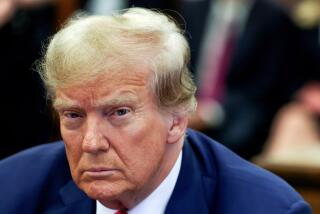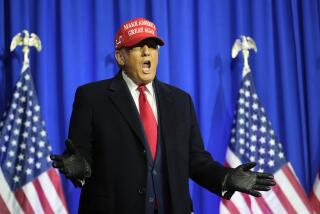Trump is stranger than fiction: John Altman on writing thrillers today
“Good fiction” means something different to everyone. To me, good fiction not only entertains; it educates, it elucidates. At its best, the word is mightier than the sword (so said the Assyrian sage Ahiqar, 2 1/2 millenniums before Edward Bulwer-Lytton gave us the more familiar version of the maxim). But the Age of Trump challenges writers of fiction, and particularly writers of political fiction, to produce work that meets this standard.
For starters: Any day’s news supplies plots so fantastic that most make-believe story lines pale in comparison. Elections stolen in collusion with the Kremlin? A White House spokesperson endorsing the Orwellian concept of “alternative facts”? Another denying that Hitler used chemical weapons against his own people? A president firing the Director of the FBI — even as the agency investigates charges of Russian interference in that president’s election?
One might argue that Trump is doing the author’s work for him; the professional fabricator need only take notes, and books practically write themselves. But when a story feels implausible, it doesn’t work. And Trump’s version of reality feels palpably far-fetched. Using a patio at a Florida golf club as a makeshift situation room during a North Korean missile test — as a guest posts pics to Facebook? Really? An author describing this scene risks taxing suspension of disbelief beyond repair. Real and plausible are not the same thing.
Moreover, good fiction plays by rules; otherwise readers feel cheated. Agatha Christie sets a murder mystery on an island, and we trust her not to reveal a hidden teleportation device in the final chapter. Frederick Forsyth sends a fictionalized assassin after Charles de Gaulle, and we trust him not to play fast and loose with documented history. But Trump’s presidency begs the question: What are the rules? Is there any convention he will not cheerfully toss over the side when it suits his purpose? Our shared sense of what is possible — what is reality — vanishes in a haze of “alternative facts.” Without a shared sense of reality, a writer cannot create tension; there are no stakes, no rules understood by the reader.
Yet another challenge: The political climate under Trump is, to put it lightly, tumultuous. Nobody knows what’s coming next. But novels take a long time to research and write, polish and publish. It’s hard enough under the most stable of circumstances to peer two years into the future. In the Age of Trump, how can one foresee what will be relevant in two weeks, let alone on some far-future publishing date?
My upcoming novel concerns the Israel/Palestine conflict — an unhappily evergreen topic. After Trump’s victory, I considered tweaking the book to reflect the signals the president-elect was sending. During those first heady weeks, he rejected the long-standing U.S. ambition of a two-state solution, endorsed a fraught relocation of the U.S. embassy from Tel Aviv to Jerusalem, and cuddled close with Netanyahu’s right-wing Likud-led coalition. But of course, shiftiness is Trump’s defining characteristic. His words and his deeds enjoy a tenuous relationship at best. Recognizing that I was powerless to predict the direction of these particular geopolitical winds, I inserted only a single line: “Israel’s greatest ally, the United States, blew hot and cold.”
(And indeed, after the inauguration Trump quickly chilled on his new bestie Netanyahu, flip-flopping on the two-state solution and warning Israel against announcing new settlements.)
My current novel-in-progress concerns North Korea — and each day’s headlines endanger its premise. But too much second-guessing hobbles a writer. One can only take a deep breath, remind oneself that war with North Korea would jeopardize much more than a humble spy thriller, and forge ahead, hoping for the best.
“It Can’t Happen Here,” which Sinclair Lewis wrote in 1935, is the cautionary tale at its best: warning, chilling, clarifying … and, sadly, prescient.
Now it has happened here. And it continues to happen, week after week. And authors, along with countless others, scramble to find their footing amid the chaos — and hope that sanity eventually prevails, and rules once again apply.
Altman’s “False Flag,” a spy thriller concerning the conflict between Israel and Palestine, will be published by Blackstone Publishing on Tuesday.
More to Read
Sign up for our Book Club newsletter
Get the latest news, events and more from the Los Angeles Times Book Club, and help us get L.A. reading and talking.
You may occasionally receive promotional content from the Los Angeles Times.






